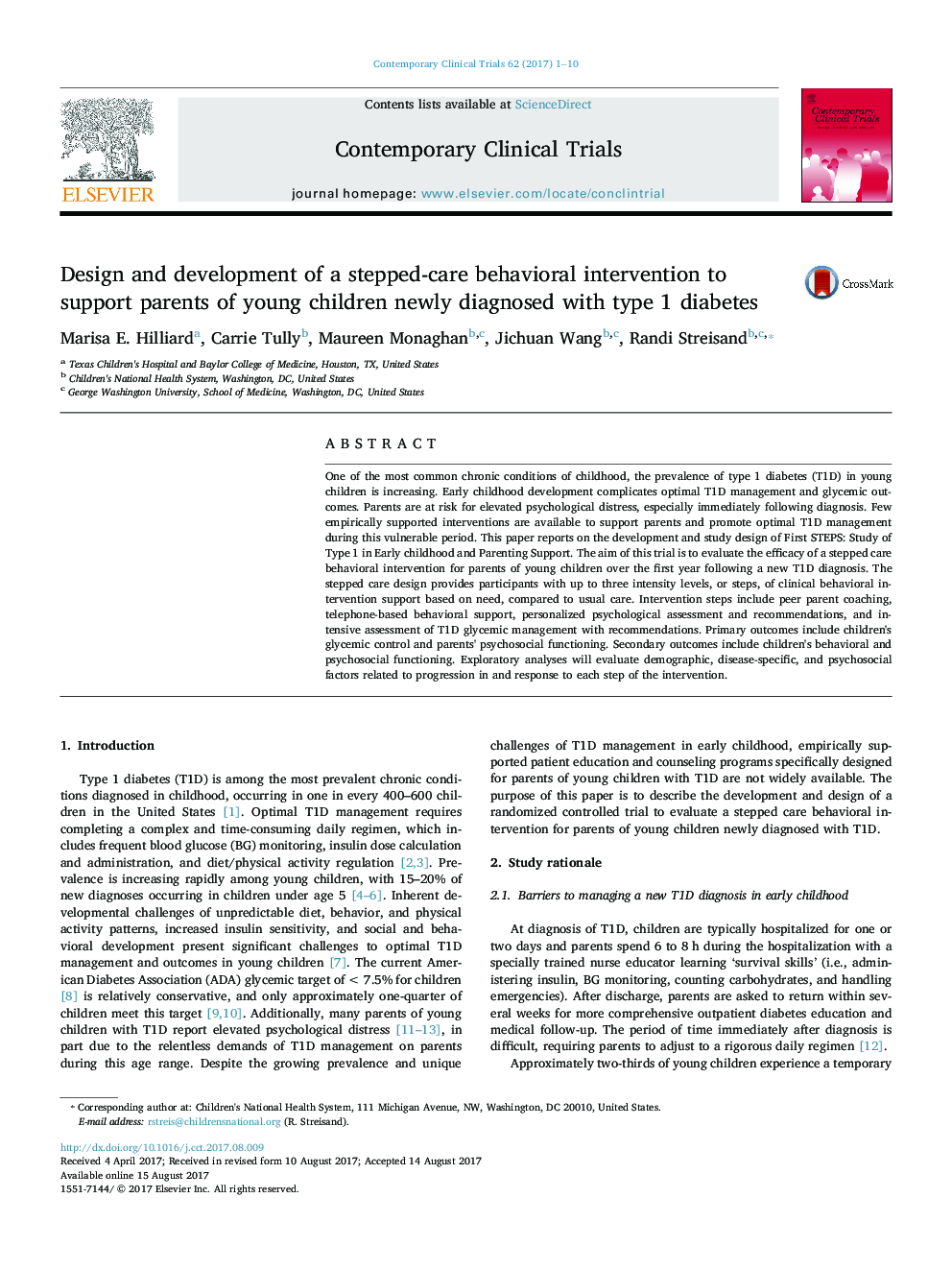| Article ID | Journal | Published Year | Pages | File Type |
|---|---|---|---|---|
| 5678503 | Contemporary Clinical Trials | 2017 | 10 Pages |
Abstract
One of the most common chronic conditions of childhood, the prevalence of type 1 diabetes (T1D) in young children is increasing. Early childhood development complicates optimal T1D management and glycemic outcomes. Parents are at risk for elevated psychological distress, especially immediately following diagnosis. Few empirically supported interventions are available to support parents and promote optimal T1D management during this vulnerable period. This paper reports on the development and study design of First STEPS: Study of Type 1 in Early childhood and Parenting Support. The aim of this trial is to evaluate the efficacy of a stepped care behavioral intervention for parents of young children over the first year following a new T1D diagnosis. The stepped care design provides participants with up to three intensity levels, or steps, of clinical behavioral intervention support based on need, compared to usual care. Intervention steps include peer parent coaching, telephone-based behavioral support, personalized psychological assessment and recommendations, and intensive assessment of T1D glycemic management with recommendations. Primary outcomes include children's glycemic control and parents' psychosocial functioning. Secondary outcomes include children's behavioral and psychosocial functioning. Exploratory analyses will evaluate demographic, disease-specific, and psychosocial factors related to progression in and response to each step of the intervention.
Related Topics
Health Sciences
Medicine and Dentistry
Medicine and Dentistry (General)
Authors
Marisa E. Hilliard, Carrie Tully, Maureen Monaghan, Jichuan Wang, Randi Streisand,
